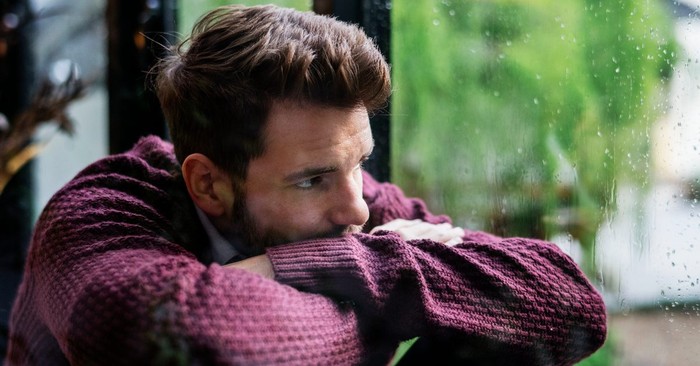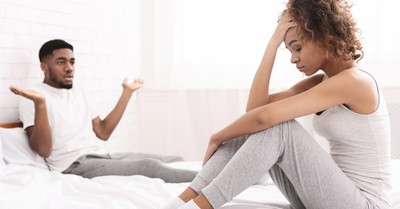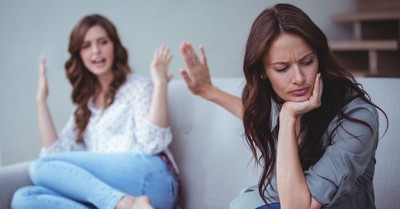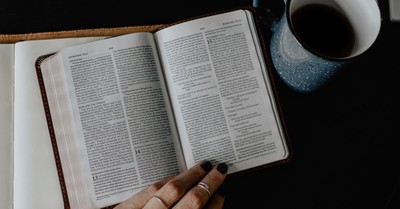Why You Need to Stop Hating Yourself
- Carrie Dedrick
- Updated Sep 05, 2024

“You know how you’re supposed to love yourself?” I asked at a low point in my life. “Well, I don’t even like myself.”
Self-loathing. Many of us will experience this pain at some point in our lives. For Christians, we often punish ourselves with self-loathing after falling short of God’s glory. But in the blog post Satan Loves Our Self-Loathing, pastor and blogger Julian Freeman writes that God never called us to hate ourselves.
“There is a world of difference between ‘walking in the light’ while confessing our sins (>1 John 1.7-10) and letting our sins define our identity. While it is appropriate to mourn our sin (>Matthew 5.4), it is not appropriate to hate ourselves,” Freeman says.
Self-loathing only delights one being: Satan. Freeman explains why:
1. When you loathe yourself, you loathe someone created in the image of God.
“What I say about people, I say about God. This is true whether I am demeaning other humans or myself. Even inward, self-loathing insults my Maker, in whose image I was created,” Freeman writes.
Scripture tells us that we should never curse those made in the image of God (James 3:8-10). That includes ourselves. Hating yourself is akin to hating the person God made in His own perfect image.
2. It diminishes your joy.
Remember the gospel’s Good News. When we hate ourselves, we detract from that joy.
Freeman writes, “If I forget that the heart of the gospel is ‘the Son of God loved me and gave himself for me’ only to remember that I am worthy of being hated rather than loved, I will lose the joy of the gospel itself.”
3. It discourages those who see grace in you.
“... no matter how badly I’m doing, there are those around who love me, see God’s grace in me, and are encouraged by me. If I continually dwell (and make them to dwell) on the sin in me, I will only discourage them and deprive them of the chance to give thanks to God for what he has done in my life,” he says.
Think of your loved ones and what your self-loathing does to them. They want to see your overcome sin through Jesus Christ, not get stuck in the darkness of dwelling on past sins.
4. It distracts you from true humility.
We are called to humility, but self-loathing makes everything about you.
Freeman says, “True humility (<>>Philippians 2.1-11) is entirely grounded in an ‘others-oriented’ worldview. Self-loathing, ironically, makes much of me. How I feel about myself becomes the central, all-determining point of reality.”
5. It makes you think that the answer is to love yourself more.
You might think that the opposite of hating yourself is loving yourself, but that’s not the case. To truly stop the cycle of self-loathing, you actually must address the depth of your sin.
“The answer is not to make little of my sin, but to make much of it: to see that it is my sin that caused Jesus to suffer and die… I don’t need to convince myself to love me; I just need to remember that because God so loved, he gave his Son,” he writes.
Crosswalk.com contributing writer Rhonda Stoppe says that Christians usually struggle with one of two feelings in the aftermath of sin: Conviction or guilt. Conviction is actually a gift from God, pointing us to repentance and forgiveness. Guilt comes from the Enemy, and lies that your sin makes you unworthy of God’s love.
“Just as a good father guides his children toward obedience for their own good, so through conviction our Heavenly Father––because of His great love for us––protects us from Satan’s schemes to destroy our lives through sinful choices. Therefore, to feel conviction is a good thing because: God's kindness is meant to lead you to repentance (Romans 2:4),” Stoppe says.
Don’t be sold into Satan’s lies of self-loathing. Embrace the forgiveness of Christ.
“So if the Son sets you free, you will be free indeed” (John 8:36).
Carrie Dedrick is an editor of Crosswalk.com. When she is not writing or editing, she can usually be found teaching dance classes, running marathons, or reading with at least one adopted dog on her lap.

.jpg)




















